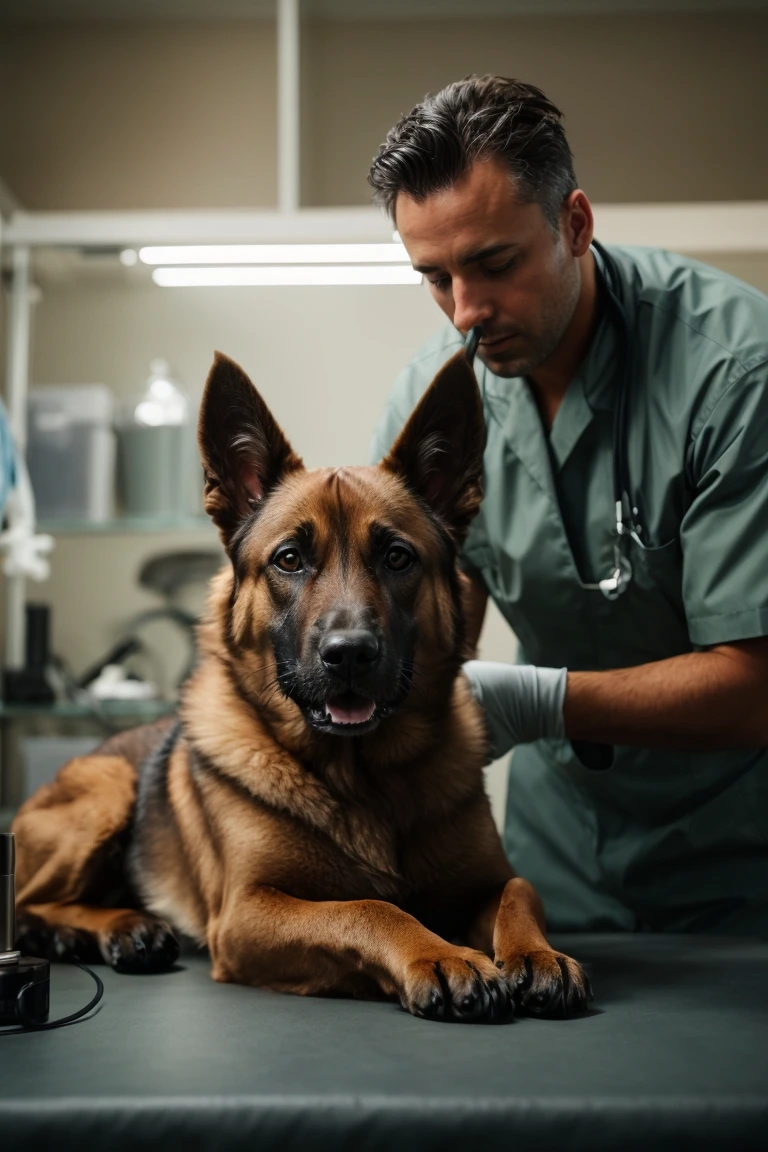Belgian Malinois Health Issues to Know About

The Belgian Malinois is an energetic, intelligent dog breed gaining popularity as a protection, police, and military working dog. However, Malinois also face certain health conditions owners should be aware of.
Knowing the typical health problems impacting Malinois allows you to provide preventative care and look out for early signs of issues. Here is an overview of the most common Malinois health concerns.
Hip and Elbow Dysplasia
- Abnormal development of hip and elbow joints. Joints become misaligned, leading to osteoarthritis.
- Cause: Genetic predisposition. Exacerbated by over-exercising puppies.
- Signs: Lameness, difficulty standing up, decreased activity, limping.
- Diagnosis: X-rays, veterinary exam
- Treatment: Medications, joint supplements, weight control, surgery in severe cases
- Prevention: Select dogs from health-tested parents. Don't over-exercise young dogs. Avoid obesity.
Hip and elbow dysplasia are unfortunately prevalent in Malinois. Have your dog's joints evaluated and discuss supplements to support joint health.
Pannus
- Autoimmune condition causing inflammation and depigmentation of the cornea and surface of the eye.
- Cause: Genetic tendency, excessive UV light exposure
- Signs: Redness, swelling, discharge from eyes. Squinting or sensitivity to light. Cloudiness across eye.
- Diagnosis: Ophthalmic exam
- Treatment: Eye drops to control inflammation and immune response. Limit sun exposure.
- Prevention: Select dogs from health-tested parents. Use canine UV-protecting sunglasses and eye drops when outdoors.
Pannus requires close management, but most dogs can live comfortably with the condition under veterinary supervision.
Allergies
- Reaction to inhaled, ingested or contact allergens resulting in skin or respiratory symptoms.
- Causes: Common triggers include pollen, mold, dust mites, grass, flea saliva, certain proteins.
- Signs: Itchy skin, recurrent ear infections, hair loss, excessive licking of paws, sneezing.
- Diagnosis: Intradermal or blood testing, elimination diet trial
- Treatment: Avoiding triggers, medications, allergy shots, omega fatty acid supplements.
- Prevention: Limited genetic predisposition. Bathe after outdoor play and keep home clean.
Allergies make Malinois miserable. Seek veterinary dermatology help to identify specific allergens and find relief.
Gastric Dilatation and Volvulus (GDV)
- Life-threatening condition where the stomach twists on itself, cutting off blood flow. Requires emergency surgery.
- Cause: Multiple factors including genetics, anatomical structure, eating habits.
- Signs: Unproductive vomiting, distended abdomen, rapid decline in health.
- Diagnosis: Abdominal X-rays, physical exam
- Treatment: Immediate surgical intervention and hospitalization
- Prevention: Avoid heavy exercise before and after meals. Feed smaller, more frequent meals. Consider prophylactic gastropexy surgery.
GDV strikes suddenly and progresses rapidly. Owners must act fast when symptoms appear to save a dog's life. Prevention is key.
Epilepsy
- Recurrent seizures caused by abnormal electrical activity in the brain.
- Cause: Idiopathic (no known cause), structural brain abnormalities, certain toxins and infections, metabolic disorders. More common in some breeds like Malinois.
- Signs: Convulsions, twitching, loss of consciousness, drooling, chomping, loss of bladder/bowel control.
- Diagnosis: Physical and neurological exam, blood tests, MRI of the brain.
- Treatment: Medications to control seizures. Avoid triggers that lower seizure threshold.
- Prevention: Select dogs from genetically healthy parents. Proper nutrition. Avoid toxins. Provide mental stimulation.
If you witness your Malinois having a seizure, remain calm. Note details to share with your vet for proper diagnosis and treatment.
Cancer
- Abnormal tissue growth that can occur in any part of the body. More prevalent in senior dogs (age 8+).
- Cause: Complex interaction between genetic and environmental factors.
- Signs: Highly variable depending on tumor type and location. Lumps, abnormal discharge, swelling, weight loss, lethargy.
- Diagnosis: Imaging, biopsies
- Treatment: Surgery, chemotherapy, radiation
- Prevention: Spay/neuter to reduce hormone-driven cancers. Routine vet exams to find early. Avoid carcinogens and feed nutritious diet.
Catching cancer early dramatically improves prognosis. Discuss screening tests with your vet based on your dog's risk profile.
How to Support Malinois Health
- Choose responsible breeders who genetically health screen their dogs to reduce risk of inherited conditions. Meet both parents.
- Feed high quality diet with no corn, wheat, by-products, artificial additives. Omega fatty acids support joints and skin.
- Maintain ideal lean body weight. Avoid obesity which strains joints.
- Vaccinate and use preventatives like flea/tick/heartworm medication. Reduce infectious disease exposure.
- Provide mental and physical exercise daily to avoid anxiety and boredom.
- Spay/neuter to decrease reproductive cancers and some orthopedic issues.
- Annual vet exams and prompt attention for any concerns that arise. Prevention and early detection are key.
While active Malinois are prone to certain health issues, a proactive approach helps them live vigorously into their senior years. Be attuned to your dog's needs and partner closely with your veterinarian.